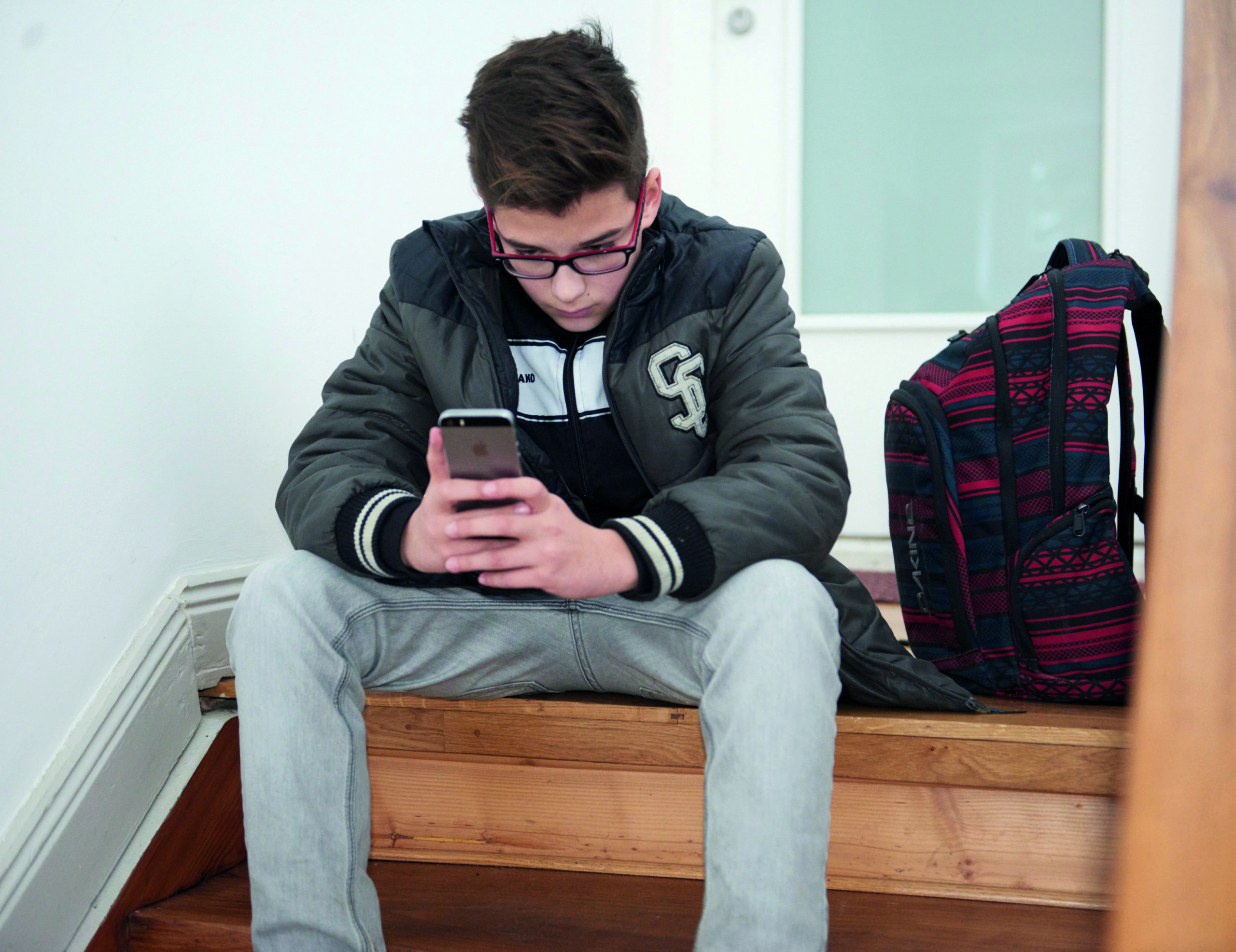 Online chat against grief and worries
Online chat against grief and worries
Support for young people experiencing stress
Supporting children and young people in difficult situations was important to Lou when she started giving counselling via chat. "It's truely a sign of trust when a stranger tells me about his or her worries. And when you come to a solution together in the end, it's an awesome feeling!" Like in the chat with Mara. Pressure at school and the feeling that everything is just too much right now - that's what Mara turned to Lou for. With her approachable manner, Lou was able to create a space in which Mara confided in her and in which she felt she was being taken seriously. Lou was able to reveal her own expectations of herself to Mara and together they found out what would be good for Mara in this situation. For example, being loving with herself, rewarding herself, but also taking her parents into her confidence. Consultations in the chat do not always end with a good solution. And yet the feeling remains that, by reaching out, the children and young people have taken an important first step.
Necessity
Support for children and young people in Germany who feel troubled and are looking for help
Activity
"Nummer gegen Kummer" provides chat counselling for young people suffering from stress and qualifies new volunteer counsellors
Countable effort
Number of messages sent in a chat or complete chat counselling sessions
Result
The psychological well-being of young people improves so that they can better cope with stress
Systemic effect
Strengthening the mental health of young people relieves the burden on families, education institutions and mental health services
Background
More and more children use chat counselling when they need help. In particular, sensitive topics are addressed in chat counselling, even more so than in face-to-face sessions or on the phone (Hanley et al., 2017). Thus, in the anonymous chat counselling of Nummer gegen Kummer, people seeking help often dare to talk about difficult and shameful topics as well as fears for the first time. Here they discover that they are taken seriously and learn that it can be beneficial to seek help. In addition, the counselling encourages them to seek further help if necessary or to confide in people that are close to them. The chat is uncomplicated, easily accessible and helps to reduce psychological problems and fears among children and young people and to dispel loneliness. The Covid pandemic in particular has affected the well-being of many children and young people. Currently, eight out of ten children and adolescents feel distressed by the Covid pandemic (Ravens-Sieberer et al., 2022) and experts assume that the psychological strain of the pandemic will continue to have an effect on children and young people. But even beyond major crises, there is a lot for young people to talk about: bullying, conflicts with parents, lovesickness, anxieties. Adolescence is a challenging time for children and young people, during which mental illness often develops and manifests (Solmi et al., 2021). It is important to strengthen the mental health and resources of children and young people in the long term and to show them possible courses of action and offer them support (Bujard et al., 2021) so that they can cope with challenging changes in their everyday lives. Chat counselling can provide such support.
The good deed
With your donation today, you provide three chat messages for a child in Germany who is looking for help. The live chat for children and young people is always available on Wednesday and Thursday afternoons. Here they can message with trained counsellors in a one-on-one chat, manage their messages anonymously or start a new chat. The young people can make use of the counselling as often as they like. Often it already helps to let go of stressful matters or to get some food for thought. The counsellors are trained to recognise and strengthen the individual resources of the young people. In this way, they help them in identifying their own coping strategies, which they can fall back on later in life. NgK thus contributes to averting negative effects on the physical, mental, spiritual and social development of children and young people in Germany. This reduces the burden on families, educational and psychosocial care centres in the long run.

About Germany
Berlin
Capital
83,129,285
Number of inhabitants
50,801.8
Gross domestic product per capita per year
Rang 9 von 191
Human Development Index
In 2020/21, Germany closed its schools completely on 74 days and partially on 109 days; compared to Sweden, where schools were only closed for a total of 31 days.
About the organization and further information
Association
Nummer gegen Kummer e.V.
Website
http://www.nummergegenkummer.de

Further information and source
- Andresen, S. et al, 2020. "Die Corona-Pandemie hat mir wertvolle Zeit genommen“ – Jugendalltag 2020, Universitätsverlag, Hildesheim.
- Ravens-Sieberer, U. et al, 2022. Child and Adolescent Mental Health During the COVID-19 Pandemic: Results of the Three-Wave Longitudinal COPSY Study.
- Schlack, R. et al, 2020 (5) 4. Auswirkungen der COVID-19-Pandemie und der Eindämmungsmaßnahmen auf die psychische Gesundheit von Kindern und Jugendlichen, Journal of Health Monitoring, Robert-Koch-Institut, Berlin
- Bujard, M. et al, 2021. Belastungen von Kindern, Jugendlichen und Eltern in der Corona-Pandemie. Bundesinstitut für Bevölkerungsforschung.




